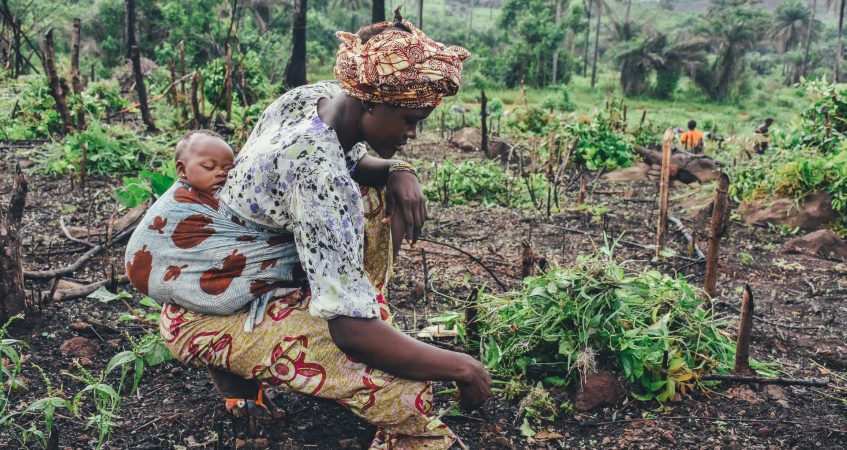We need a change of course to feed (and save) the planet

01/09/2021
by Italo Rizzi , Director of the NGO LVIA, associated with the Link2007 Network, for Africa Rivista
The UN pre-summit on food systems in preparation for the summit of heads of state to be held in New York in September closed on 28 July in Rome. The goal is to “implement the transformations of food systems so that they become more sustainable, equitable, resilient and nutritious” everywhere in the world and therefore to counteract the scourge of malnutrition and the impoverishment generated by growing inequality with a constructive dialogue and commitment to achieve the Sustainable Development Goals and in particular that of ‘zero hunger’.
The 500 delegates from 108 countries, including 62 ministers, in addition to the approximately twenty thousand participants connected online from 190 countries, represented their respective positions, aware that a still too high percentage of the world’s population has problems accessing an adequate diet and that the pandemic in 2020 increased the number of malnourished people in the world by as much as 130 million .
There were strong criticisms of the pre-summit process, littered with obstacles inside and outside the institutions. To highlight the contradictions are many peasant organizations, social movements, indigenous peoples, independent scientists and also structures of support and coordination to the FAO itself.
If much attention has been given to the technological and digital progress essential in agriculture to increase productivity and to favor the processes of adaptation to the acceleration of climate change , less consideration has been given to the need for a worldwide distribution of these benefits, in particular there where the producing communities and peasant realities live . The same goes for the conditions and political decisions that are indispensable for guaranteeing them equal opportunities and equal access, bringing local producers out of the marginal role to which they are relegated, recognizing their value.
These criticisms accuse the risk of an anti-democratic change in the governance of the International Food System, due to the focus too centered on technological and productivist solutions to solve problems actually anchored to dynamics of inequality, injustice and impoverishment.
The Italian NGO network LINK2007 shares most of these arguments.
Italy has demonstrated great vivacity on the subject , putting in place a strong diplomatic effort in an attempt to create a convergence of political processes in particular between the G20, the pre-summit on food systems, the Finance in Common Summit to be held in October in Italy and COP 26 on the climate in November. That Italy wants to play a propulsive and transformative role is also demonstrated by some of the first results obtained during the G20 ministerial meetings, such as for example the new regulation for an initial taxation of multinational companies on a global basis, overcoming the traditional taxation criterion of the income based on the tax residence of the taxpayer, or the Naples agreement on the fight against climate change.
It is also thanks to the Italian initiative that the G20 foreign and development ministers produced the Matera declaration “to address the obstacles to achieving the zero hunger goal ” as stated by the deputy foreign minister Marina Sereni.
In preparation for the pre-summit in Rome, the Directorate General for Development Cooperation coordinated the three independent Italian dialogues, one of which was organized and animated by LINK 2007 together with Slow Food and the local food network, which saw the participation of exponents of the world of Italian agricultural production with the main trade, research, business and international cooperation networks who worked jointly to elaborate contributions and proposals of the “Italian System”.
In particular, the independent dialogue on local food systems coordinated by Giaime Berti for the Italian network of local food policies, to which Slow Food, The Economy of Francesco and LINK2007 have contributed, has been important in increasingly supporting a model of production and of fruition which, through food, enhances the specific characteristics of the territories and their cultural, socio-economic and biodiversity heritage. Reaffirming the centrality of public policies in ensuring rights-based food systems and the agro-ecological transition in favor of family farming (which produces over a third of food in the world and which involves over 75% of the population of rural Africa) and to overcome the productivist model, whose negative effects on the environment and health have been made even more evident by the pandemic crisis . We are proud that the theme of community food and local systems remained present in the narrative carried out by our country at the pre-summit in Rome.
The elaboration of a conceptual synthesis and the proposal of a new model of collaboration is a very important intermediate result, which requires further efforts to help guide the action of the ‘Italian System’ and its institutions especially towards the United Nations and of Europe. Undoubtedly, this is where the great game of reorienting food governance systems is being played , to make institutions less scalable by the interests of large global companies and hostage to an agenda too focused on technological solutions that do not affect the dynamics of impoverishment.
At the New York Summit, in September, Italy will have to present itself as a ‘country system’, aware of the limits that the complexity of the United Nations system and of the different global interests will continue to produce, but determined to present itself as a model of collaboration between worlds of production, research, solidarity and international cooperation, responsible consumption, national and local institutions.
